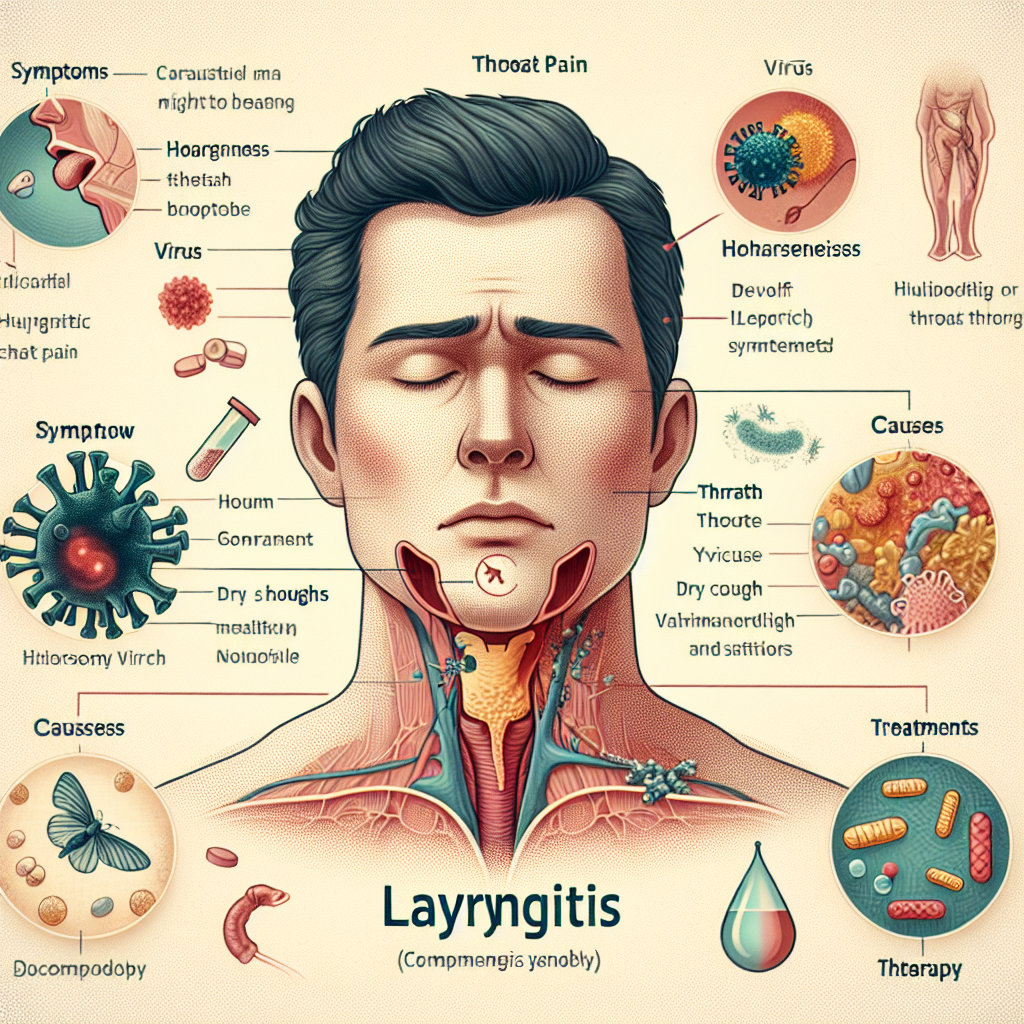In the wake of the global pandemic, many individuals have reported various health challenges, including a less-talked-about yet increasingly recognized condition: COVID laryngitis. This particular ailment can lead to discomfort, frustration, and even emotional distress as it impacts one of our most vital means of communication—our voice. Understanding COVID laryngitis, its symptoms, causes, and treatments is crucial for anyone who finds themselves grappling with its effects. In this guide, we will dissect the intricacies of COVID laryngitis, empowering you with the knowledge to manage and recover from this condition effectively.
Recognizing COVID Laryngitis: Key Symptoms and Signs
COVID laryngitis is characterized by inflammation of the larynx, commonly known as the voice box. The symptoms often mirror those of other upper respiratory infections, making it essential to recognize the distinguishing features. Key symptoms include a hoarse voice, difficulty speaking, and a persistent dry cough. Patients may also experience a sensation of irritation or discomfort in the throat, leading to an increased urge to clear it frequently. Recognizing these signs is fundamental for timely intervention.
As the condition progresses, individuals may notice a range of additional symptoms. These can include a sore throat, an altered sense of taste or smell, and fatigue. Some patients report a feeling of tightness in the throat or even a burning sensation, which can exacerbate their discomfort. Familiarity with these symptoms enables individuals to assess their health more accurately and seek appropriate medical advice when necessary.
It’s also crucial to differentiate COVID laryngitis from other similar conditions, such as allergies or traditional laryngitis resulting from viral or bacterial infections. While hoarseness is central to both, the context in which it occurs—especially with accompanying symptoms like fever or loss of smell—can be a strong indicator of COVID-related laryngitis, warranting a different approach to treatment and management.
Exploring Causes and Effective Treatments for COVID Laryngitis
The underlying causes of COVID laryngitis primarily stem from the inflammatory response triggered by the SARS-CoV-2 virus. Infection leads to swelling in the vocal cords, significantly impacting voice quality and throat comfort. Additionally, post-viral inflammation can persist long after the initial infection has resolved, creating lingering symptoms that can be distressing for patients. Understanding that COVID laryngitis is part of a broader spectrum of post-viral syndromes helps contextualize its emergence.
Effective treatment strategies for COVID laryngitis focus on alleviating symptoms and supporting vocal health. Basic interventions often begin with hydration; drinking plenty of fluids can help soothe the throat and keep vocal cords lubricated. Steam inhalation, whether through a hot shower or a bowl of hot water, can also provide immediate relief by moistening the airways. For those experiencing significant discomfort, over-the-counter pain relievers like ibuprofen or acetaminophen can mitigate inflammation and help restore comfort during recovery.
In more severe cases or when symptoms persist, consulting a healthcare provider becomes essential. They may recommend voice therapy with a speech-language pathologist, who can provide specialized techniques to ease vocal strain. In rare cases, a physician may prescribe corticosteroids to reduce inflammation, especially if the patient experiences significant voice disruption. Ultimately, personalized care plans can empower individuals to manage their condition effectively while promoting healing and vocal recovery.
Understanding COVID laryngitis is key to navigating the complexities of this post-viral condition successfully. By recognizing its symptoms, understanding its causes, and exploring effective treatment options, individuals can take proactive steps toward recovery. Whether you are facing persistent hoarseness or other symptoms associated with COVID laryngitis, informed action is your best ally. Don’t hesitate to reach out to healthcare professionals for tailored advice and support. Remember, your voice matters—prioritize your health and well-being by staying informed and proactive in your recovery journey.
Understanding Lower Back Pain Linked to COVID-19: Insights and ManagementUnderstanding COVID-19: Navigating Loss of Appetite ChallengesUnderstanding COVID KP2 Symptoms: What You Need to KnowRelevant LinkRelevant LinkRelevant Link



